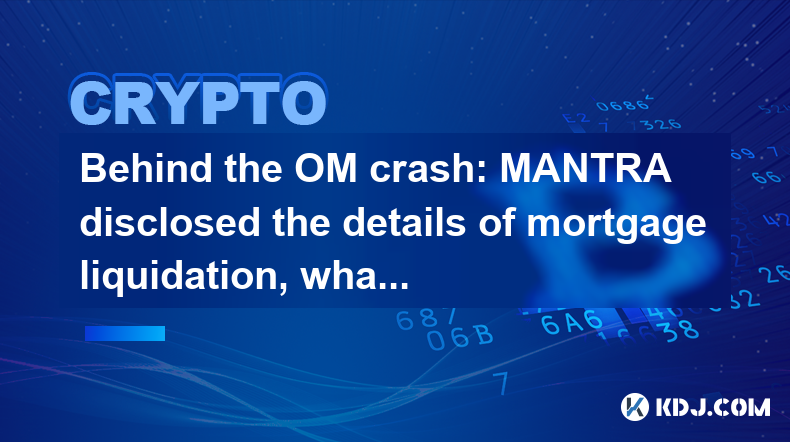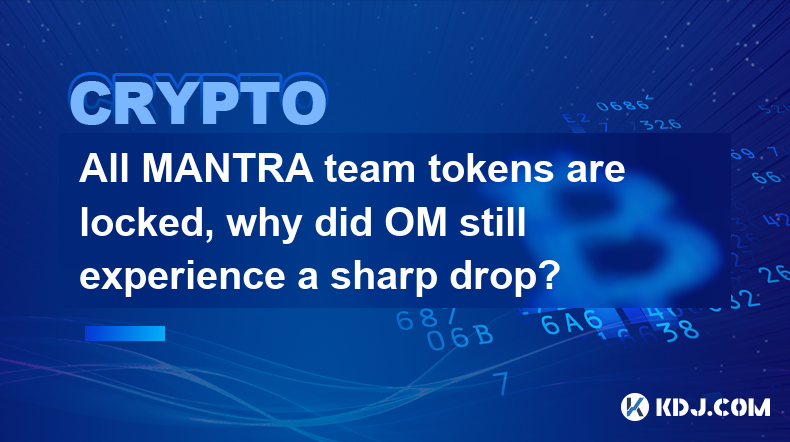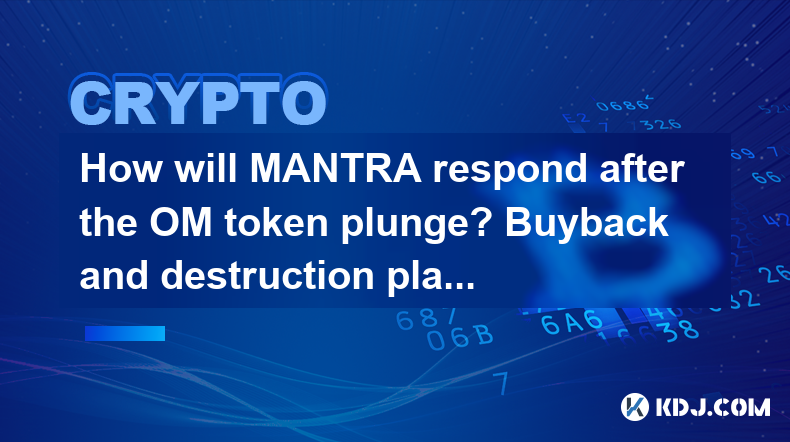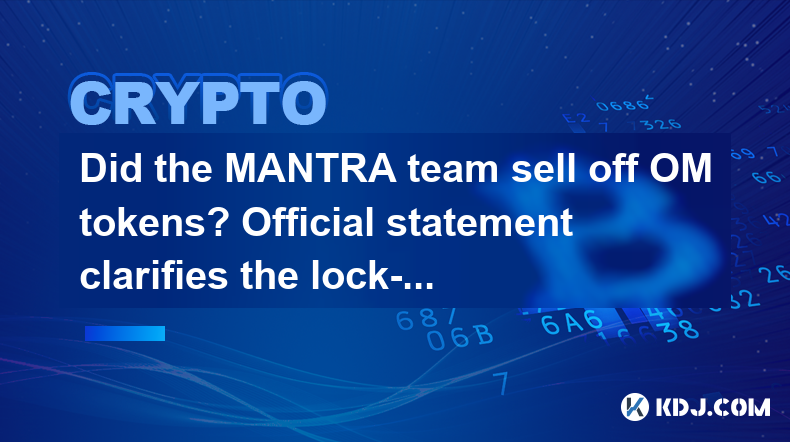-
 Bitcoin
Bitcoin $84,248.9449
-1.21% -
 Ethereum
Ethereum $1,575.2066
-1.39% -
 Tether USDt
Tether USDt $0.9998
0.02% -
 XRP
XRP $2.0496
-1.58% -
 BNB
BNB $590.5963
-0.05% -
 Solana
Solana $136.9000
-1.45% -
 USDC
USDC $0.9998
0.02% -
 TRON
TRON $0.2450
1.05% -
 Dogecoin
Dogecoin $0.1538
-2.80% -
 Cardano
Cardano $0.6156
-1.87% -
 UNUS SED LEO
UNUS SED LEO $9.3599
0.20% -
 Chainlink
Chainlink $12.9425
1.25% -
 Avalanche
Avalanche $19.3715
-0.97% -
 Toncoin
Toncoin $2.9763
0.17% -
 Stellar
Stellar $0.2422
-1.72% -
 Shiba Inu
Shiba Inu $0.0...01217
-0.33% -
 Hedera
Hedera $0.1624
-2.16% -
 Sui
Sui $2.1068
-1.63% -
 Bitcoin Cash
Bitcoin Cash $333.9150
-1.07% -
 Polkadot
Polkadot $3.8227
2.22% -
 Hyperliquid
Hyperliquid $17.6552
-1.66% -
 Litecoin
Litecoin $75.9125
-0.15% -
 Dai
Dai $1.0000
0.02% -
 Bitget Token
Bitget Token $4.3821
-1.98% -
 Ethena USDe
Ethena USDe $0.9991
0.01% -
 Pi
Pi $0.6282
-3.01% -
 Monero
Monero $214.2181
-0.28% -
 Uniswap
Uniswap $5.1977
-1.01% -
 Pepe
Pepe $0.0...07351
1.98% -
 Aptos
Aptos $4.9456
2.56%
What are the advantages of Bitcoin payment platforms in cross-border transactions?
Bitcoin payment platforms revolutionize cross-border transactions with speed, low costs, increased accessibility, enhanced security, and transparency, making them a superior alternative to traditional banking.
Apr 19, 2025 at 01:35 pm

Bitcoin payment platforms have emerged as a revolutionary tool for cross-border transactions, offering numerous advantages that traditional banking systems struggle to match. In this article, we will explore the key benefits of using Bitcoin payment platforms for international payments, focusing on speed, cost, accessibility, security, and transparency.
Speed of Transactions
One of the most significant advantages of using Bitcoin payment platforms for cross-border transactions is the speed at which payments can be processed. Traditional banking systems often take several days to complete international transfers due to the involvement of multiple intermediaries. In contrast, Bitcoin transactions can be completed within minutes, regardless of the geographical location of the sender and recipient.
The blockchain technology that underpins Bitcoin allows for direct peer-to-peer transactions, eliminating the need for intermediaries. This streamlined process ensures that funds are transferred quickly and efficiently, making Bitcoin payment platforms an attractive option for businesses and individuals who need to send money across borders.
Lower Transaction Costs
Another compelling advantage of Bitcoin payment platforms is the reduced transaction costs associated with cross-border payments. Traditional international transfers often come with high fees, including currency conversion charges, intermediary bank fees, and transfer fees. These costs can significantly reduce the amount of money that reaches the recipient.
Bitcoin transactions, on the other hand, typically have much lower fees. The decentralized nature of the blockchain means that there are no intermediary banks to charge fees, and the cost of processing a Bitcoin transaction is often just a small fraction of what traditional banks charge. This makes Bitcoin payment platforms a cost-effective solution for cross-border payments, particularly for smaller transactions where bank fees can have a more significant impact.
Increased Accessibility
Bitcoin payment platforms also offer increased accessibility for individuals and businesses engaged in cross-border transactions. Traditional banking systems often have strict requirements for opening accounts and making international transfers, which can be a barrier for people in certain regions or those without access to banking services.
Bitcoin, however, is a decentralized currency that can be accessed by anyone with an internet connection. This means that people in underbanked or unbanked regions can participate in the global economy more easily. Bitcoin payment platforms provide a user-friendly interface that allows individuals to send and receive funds across borders without the need for a traditional bank account, making international payments more inclusive and accessible.
Enhanced Security and Privacy
Security is a critical concern when it comes to cross-border transactions, and Bitcoin payment platforms offer enhanced security and privacy features that set them apart from traditional banking systems. Bitcoin transactions are recorded on the blockchain, a public ledger that is transparent and immutable. This means that once a transaction is confirmed, it cannot be altered or reversed, providing a high level of security against fraud and unauthorized access.
Furthermore, Bitcoin payment platforms often incorporate advanced encryption and security protocols to protect user data and funds. Users can generate unique addresses for each transaction, adding an extra layer of privacy and reducing the risk of personal information being compromised. This combination of blockchain technology and robust security measures makes Bitcoin payment platforms a secure choice for cross-border transactions.
Transparency and Traceability
The use of blockchain technology in Bitcoin payment platforms also provides transparency and traceability for cross-border transactions. Every Bitcoin transaction is recorded on the public ledger, allowing users to track the movement of funds in real-time. This level of transparency can be particularly beneficial for businesses that need to keep accurate records of their international payments for accounting and compliance purposes.
Moreover, the traceability of Bitcoin transactions can help combat money laundering and other illicit activities. While Bitcoin is often associated with anonymity, the blockchain's public nature means that transactions can be traced back to their origin, providing a tool for law enforcement agencies to investigate and prevent financial crimes. This balance between privacy and traceability makes Bitcoin payment platforms a responsible choice for cross-border transactions.
Practical Example of Using a Bitcoin Payment Platform
To illustrate the advantages of Bitcoin payment platforms in cross-border transactions, let's consider a practical example of how a user might send funds internationally using a popular platform like BitPay:
- Create a BitPay account: Start by visiting the BitPay website and signing up for an account. You will need to provide your email address and create a secure password.
- Verify your identity: Depending on your location and the amount you wish to send, you may need to complete a verification process. This typically involves providing personal information and uploading identification documents.
- Add funds to your BitPay wallet: You can fund your BitPay wallet using a variety of methods, such as bank transfer, credit card, or another cryptocurrency. Choose the option that best suits your needs and follow the on-screen instructions to add funds.
- Initiate the cross-border transaction: Once your wallet is funded, you can initiate a cross-border transaction. Enter the recipient's Bitcoin address or email address, specify the amount you wish to send, and review the transaction details.
- Confirm and send the payment: Double-check all the information and confirm the transaction. BitPay will process the payment and send the Bitcoin to the recipient's wallet. The transaction will be recorded on the blockchain and can be tracked in real-time.
- Recipient receives the funds: The recipient will receive a notification once the Bitcoin has been credited to their wallet. They can then convert the Bitcoin to their local currency or use it for further transactions.
This example demonstrates how Bitcoin payment platforms can simplify the process of sending money across borders, offering a user-friendly and efficient alternative to traditional banking systems.
Frequently Asked Questions
Q: Are Bitcoin payment platforms legal for cross-border transactions?
A: The legality of using Bitcoin payment platforms for cross-border transactions varies by country. Many countries have established regulations for cryptocurrencies, while others have more ambiguous legal frameworks. It is essential to research and comply with the laws and regulations of both the sender's and recipient's jurisdictions before using Bitcoin for international payments.
Q: Can Bitcoin payment platforms be used for business-to-business (B2B) cross-border transactions?
A: Yes, Bitcoin payment platforms can be used for B2B cross-border transactions. Many businesses have adopted Bitcoin as a payment method due to its speed, low cost, and security features. However, businesses should ensure that they comply with relevant tax and accounting regulations when using Bitcoin for international payments.
Q: How can I protect my Bitcoin from theft or loss during cross-border transactions?
A: To protect your Bitcoin during cross-border transactions, it is crucial to use strong security practices. This includes using a secure wallet with two-factor authentication, keeping your private keys offline, and regularly backing up your wallet. Additionally, be cautious of phishing attempts and only use reputable Bitcoin payment platforms with a track record of security and reliability.
Q: Can I use Bitcoin payment platforms to send money to countries with currency restrictions?
A: Bitcoin payment platforms can be used to send money to countries with currency restrictions, but it is important to be aware of the legal implications. Some countries have strict regulations on the use of cryptocurrencies, and sending Bitcoin to these jurisdictions may be subject to legal scrutiny. Always research the local laws and regulations before attempting to send Bitcoin to a country with currency restrictions.
Disclaimer:info@kdj.com
The information provided is not trading advice. kdj.com does not assume any responsibility for any investments made based on the information provided in this article. Cryptocurrencies are highly volatile and it is highly recommended that you invest with caution after thorough research!
If you believe that the content used on this website infringes your copyright, please contact us immediately (info@kdj.com) and we will delete it promptly.
- XRP Has Officially Surpassed Ethereum (ETH) in Fully Diluted Market Cap
- 2025-04-20 20:00:13
- Best Wallet Token ($BEST) is disrupting the $11 billion crypto wallet space with a new super app and strategic tokenomics.
- 2025-04-20 20:00:13
- Investor Forecasts 50-Fold Return On XRP
- 2025-04-20 19:55:12
- Sui Has Been Making Waves Lately, with Its Ecosystem Drawing in Fresh Attention
- 2025-04-20 19:55:12
- Ethereum (ETH) Price Remains at March 2023 Levels Despite Community Activity and Internal Changes
- 2025-04-20 19:50:13
- XRP Ledger (XRPL) DEX Promises New Opportunities for Tokenized Assets
- 2025-04-20 19:50:13
Related knowledge

Behind the OM crash: MANTRA disclosed the details of mortgage liquidation, what measures will be taken in the future?
Apr 20,2025 at 05:49am
The recent crash of the OM token has sent shockwaves through the cryptocurrency community, prompting MANTRA, the platform behind OM, to disclose detailed insights into the mortgage liquidation that led to this event. In this article, we will delve into the specifics of what happened, the mechanisms of mortgage liquidation, and the measures MANTRA plans ...

All MANTRA team tokens are locked, why did OM still experience a sharp drop?
Apr 20,2025 at 11:14am
Introduction to MANTRA and OM TokenThe MANTRA project is a blockchain platform that aims to provide a scalable and secure environment for decentralized applications (dApps). The native token of the MANTRA ecosystem is OM, which plays a crucial role in governance, staking, and other functionalities within the platform. Recently, the MANTRA team announced...

How will MANTRA respond after the OM token plunge? Buyback and destruction plan revealed
Apr 19,2025 at 11:42pm
The recent plunge in the OM token price has left many investors and enthusiasts of the MANTRA ecosystem concerned about the future stability and value of their holdings. In response to these market fluctuations, MANTRA has announced a comprehensive buyback and destruction plan aimed at restoring confidence and supporting the long-term health of the OM t...

Did the MANTRA team sell off OM tokens? Official statement clarifies the lock-up situation
Apr 19,2025 at 10:56pm
The recent buzz around the MANTRA project and its native token, OM, has led to speculation and concerns within the cryptocurrency community about whether the MANTRA team has sold off their OM tokens. To address these concerns and clarify the situation, the MANTRA team has released an official statement detailing the lock-up situation of their tokens. Th...

What caused the OM crash? MANTRA officially responded to the forced liquidation incident
Apr 20,2025 at 09:35am
The recent crash of OM, the native token of the MANTRA DAO ecosystem, has sent ripples through the cryptocurrency community, leaving many investors and users seeking answers. In this article, we delve into the details of the OM crash, exploring the events leading up to it and the official response from MANTRA DAO. We aim to provide a comprehensive under...

How do Bitcoin payment platforms comply with Anti-Money Laundering (AML) regulations?
Apr 20,2025 at 07:15am
Bitcoin payment platforms operate at the intersection of cryptocurrency and traditional finance, necessitating strict adherence to Anti-Money Laundering (AML) regulations. Compliance with these regulations is crucial to prevent the misuse of digital currencies for illicit activities such as money laundering and terrorist financing. This article explores...

Behind the OM crash: MANTRA disclosed the details of mortgage liquidation, what measures will be taken in the future?
Apr 20,2025 at 05:49am
The recent crash of the OM token has sent shockwaves through the cryptocurrency community, prompting MANTRA, the platform behind OM, to disclose detailed insights into the mortgage liquidation that led to this event. In this article, we will delve into the specifics of what happened, the mechanisms of mortgage liquidation, and the measures MANTRA plans ...

All MANTRA team tokens are locked, why did OM still experience a sharp drop?
Apr 20,2025 at 11:14am
Introduction to MANTRA and OM TokenThe MANTRA project is a blockchain platform that aims to provide a scalable and secure environment for decentralized applications (dApps). The native token of the MANTRA ecosystem is OM, which plays a crucial role in governance, staking, and other functionalities within the platform. Recently, the MANTRA team announced...

How will MANTRA respond after the OM token plunge? Buyback and destruction plan revealed
Apr 19,2025 at 11:42pm
The recent plunge in the OM token price has left many investors and enthusiasts of the MANTRA ecosystem concerned about the future stability and value of their holdings. In response to these market fluctuations, MANTRA has announced a comprehensive buyback and destruction plan aimed at restoring confidence and supporting the long-term health of the OM t...

Did the MANTRA team sell off OM tokens? Official statement clarifies the lock-up situation
Apr 19,2025 at 10:56pm
The recent buzz around the MANTRA project and its native token, OM, has led to speculation and concerns within the cryptocurrency community about whether the MANTRA team has sold off their OM tokens. To address these concerns and clarify the situation, the MANTRA team has released an official statement detailing the lock-up situation of their tokens. Th...

What caused the OM crash? MANTRA officially responded to the forced liquidation incident
Apr 20,2025 at 09:35am
The recent crash of OM, the native token of the MANTRA DAO ecosystem, has sent ripples through the cryptocurrency community, leaving many investors and users seeking answers. In this article, we delve into the details of the OM crash, exploring the events leading up to it and the official response from MANTRA DAO. We aim to provide a comprehensive under...

How do Bitcoin payment platforms comply with Anti-Money Laundering (AML) regulations?
Apr 20,2025 at 07:15am
Bitcoin payment platforms operate at the intersection of cryptocurrency and traditional finance, necessitating strict adherence to Anti-Money Laundering (AML) regulations. Compliance with these regulations is crucial to prevent the misuse of digital currencies for illicit activities such as money laundering and terrorist financing. This article explores...
See all articles























































































